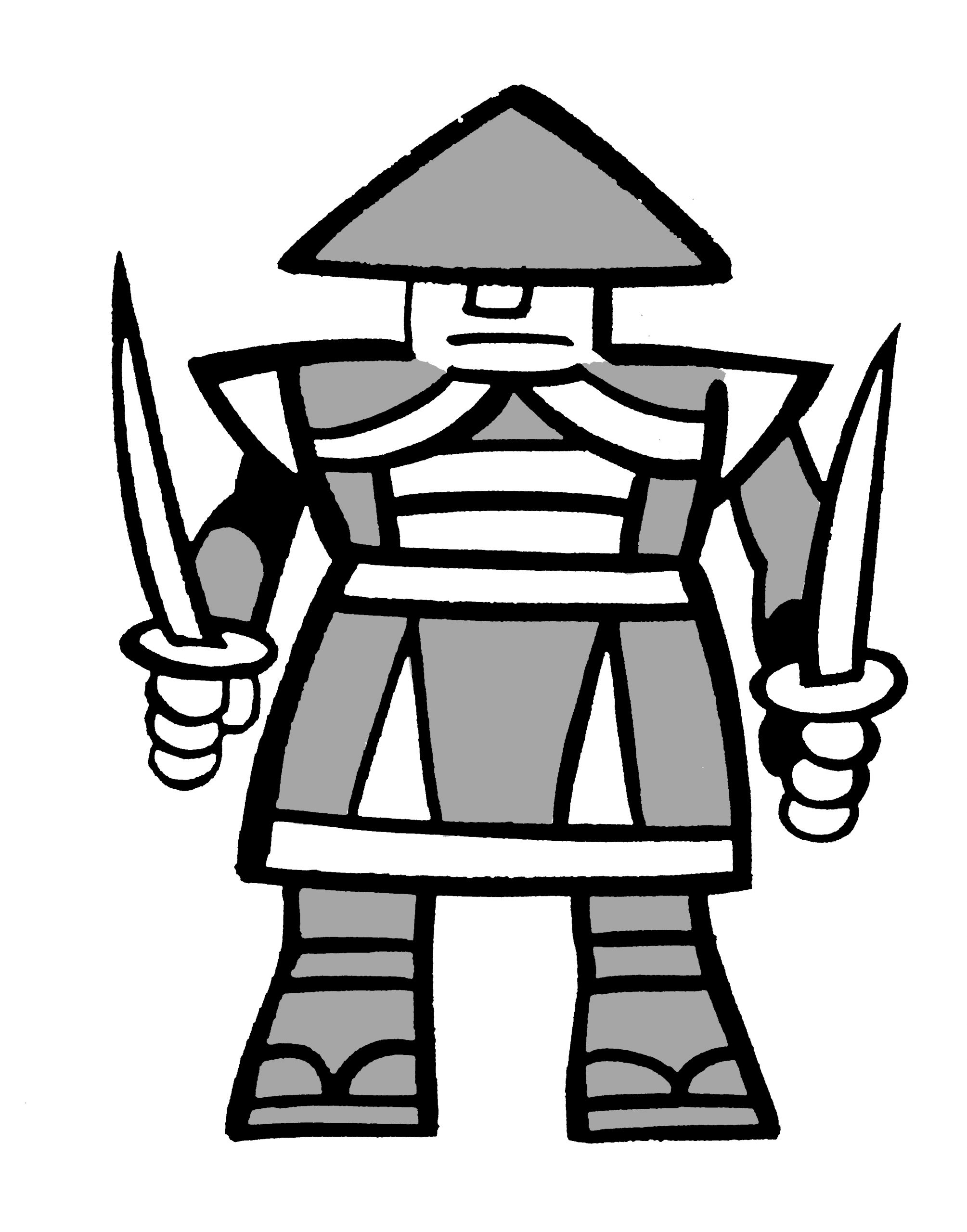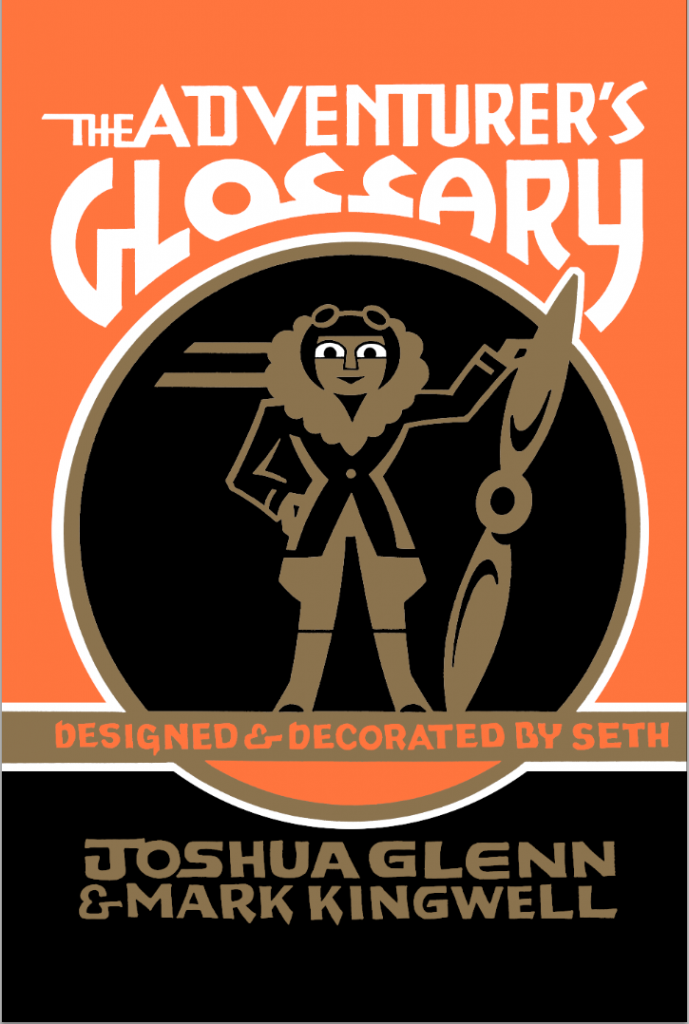WATCHWORDS (6)
By:
December 22, 2021

In October, McGill-Queen’s University Press published The Adventurer’s Glossary by HILOBROW’s Joshua Glenn, in collaboration with the philosopher Mark Kingwell and the cartoonist Seth. The following excerpt from the book was first published by BOING BOING.
Here are five sample entries from the glossary’s “R” section:
RAFFISH
The eighteenth-century slang term raffish means “disreputable-looking, showing a lack of regard for conventional behaviour, appearance, or style.” It is derived from the British colloquialism raff (odds and ends) and ultimately from the French slang phrase rif et raf (one and all, every single bit). A castaway like Robinson Crusoe, who wears whatever garments he can salvage, is raffish; so is a bohemian who wears nothing but thrifted or upcycled clothing.RESISTANCE
Since 1939, organized, covert opposition to an invading, occupying power has been known as resistance – from the Latin resistere (make a stand against, oppose). Notable resistance movements across German-occupied Europe during WWII included not only the French Resistance but the Polish Resistance, Soviet partisans, and others. In the final episode of the 1967–68 British sci-fi TV show The Prisoner, the titular prisoner Number Six (portrayed by Patrick McGoohan, who created the show) is lauded for having fought a “private war” against neo-Foucauldian forces of coercion: “He has revolted. Resisted. Fought. Held fast.”
See: MAQUISRISK
Borrowed, via French, from the Vulgar Latin resicum (nautical hazard), which may itself be a borrowing from Arabic, to risk means “run into danger.” Figuratively, the term has come to mean “expose oneself to the possibility of loss, injury, or other adverse circumstance.” Fun fact: The strategy board game Risk, invented by Albert Lamorisse around the time he was directing The Red Balloon (1956), was inspired by the tabletop war games used by military strategists.ROBINSONADE
A robinsonade is an adventure story relying on one or more of the tropes first popularized by Daniel Defoe’s 1719 novel Robinson Crusoe. The protagonist of a robinsonade finds herself required to exercise shrewd practicality in rebuilding her life from scratch, using the materials she finds close at hand; in doing so, she discovers the rewards of meaningful work and self-sufficiency. Fun fact: In Rousseau’s 1762 educational treatise Emile, the only book that the young student Emile is allowed to read before the age of twelve is Robinson Crusoe.RONIN
The fourteenth-century Japanese term ronin, which refers to a wandering samurai without a home or master – that is, one forced to make a living dishonourably, e.g., as a bodyguard, bandit, assassin, or mercenary soldier – literally means “wave-person.” Figuratively speaking, the ronin ceaselessly comes and goes like an ocean’s wave; that is to say, they have no fixed place of abode. Movies like Mizoguchi’s The 47 Ronin (1941), Kurosawa’s Seven Samurai (1954), and Kobayashi’s Harakiri (1962) popularized the ronin as a knight errant figure.
See: KNIGHT ERRANT, SAMURAI
Looking for a gift for a word nerd and/or lover of adventure? Your quest ends here!

***
MORE ADVENTURE on HILOBROW: Katia Krafft | Freya Stark | Louise Arner Boyd | Mary Kingsley | Bruce Chatwin | Hester Lucy Stanhope | Annie Smith Peck | Richard Francis Burton | Isabella Lucy Bird | Calamity Jane | Ernest Shackleton | Osa Helen Johnson | Redmond O’Hanlon | Gertrude Bell | George Mallory | Neta Snook | Jane Digby | Patty Wagstaff | Wilfred Thesiger | Joe Carstairs | Florence “Pancho” Barnes | Erskine Childers | Jacques-Yves Cousteau | Michael Collins | Thor Heyerdahl | Jean-Paul Clébert | Tristan Jones | Neil Armstrong
